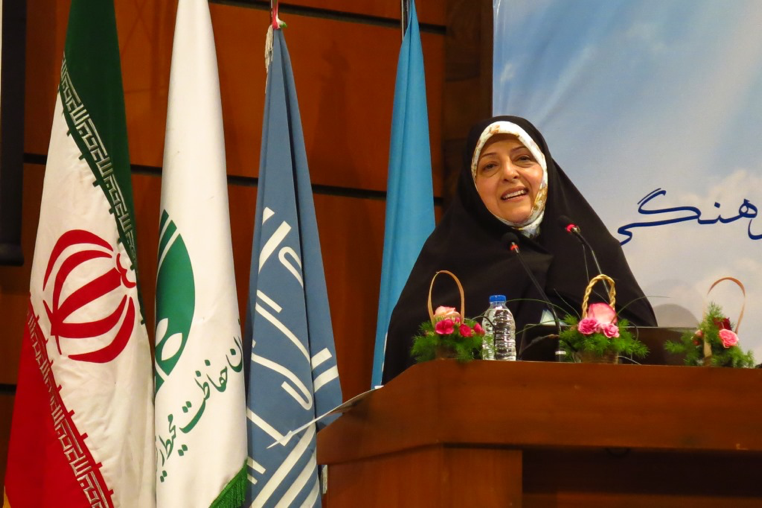Second International Seminar on the Environment, Culture and Religion, 2016
By: Nigel Crawhall (CEESP Chair of the Specialist Group on Religion, spirituality, environmental conservation and climate justice (ReSpECC)
CEESP Special Advisor on climate change, Nigel Crawhall, attended the 2nd International Seminar on the Environment, Culture and Religion held in Tehran, Islamic Republic of Iran from 23 - 24 April 2016. The inspiration for the event has been the cooperation between outgoing Executive Director of UNEP, Achim Steiner, and the current Vice President of the Islamic Republic of Iran, Dr Masoumeh Ebtekar, a distinguished environmentalist and diplomat. This was the second such event and the third meeting hosted in Tehran on multilateralism, culture and environmental conservation. It was a joint effort of UNESCO, UNEP and the Iranian Department of the Environment. The meeting involved a numerous different stakeholders and experts, including Mary Evelyn Tucker and John Grimm from the Yale Forum on Religion and Ecology; Prof Dr Ibrahim Özdemir from Ankara University, co-editor of Globalization, Ethics and Islam (2005), who worked on the Istanbul Islamic Declaration; Father John Brinkman - a Catholic priest, leading writer on religion and climate change and member of the Commission on Ecology and Religion of the Maryknoll Order. His Grace, Bishop Marcelo Sandoro Sanchez, President of the Pontifical Academy for Science and the Pontifical Academy for Social Sciences, a key contributor to the 2015 Papal Encyclical, Laudato Si, attended to represent the Holy See. The mix included engaged activists, indigenous leaders, policy specialists, academics, politicians and clerics. Both Achim Steiner and his mentor, Klaus Töpfer, gave key note presentations and influential Finnish member of Parliament, Pekka Haavisto spoke on the challenges of multilateralism.

Photo: Nigel Crawhall
We had a key note speech by HE President Hassan Rouhani, several speeches and participation by Dr Ebtekar, several Ministerial contributions, and we were hosted by Dr Mahnaz Mazaheri Assadi, Project Manager at the Department of the Environment - herself a world-class biologist and conservationist. It was evident that the current government of Iran is serious about the threats of climate change and environmental degradation, including species and habitat loss in Iran, and they see their religion and culture as a medium for public mobilisation, understanding and behaviour change. We often hear politicians speak about the environment, but here we had the Head of State, environmental experts in senior decision-making positions, clerics and scientists working closely together to create a coherent approach to change and sustainability.
There were seven major religions represented in the Seminar, including Shi'a, Sunni, Sufi and Zoroastrian communities from Iran and neighbouring states. There was a large attendance by Iranian university students and researchers. International delegates came from Europe, Africa, the Middle East, South Asia, South East Asia, North America and South America.
The conference focussed on the role of religion and culture in the implementation of the new UN Sustainability Goals, exploring the role of different value systems and cultural diversity as resources for conservation, climate justice action, bridging between science and other knowledge systems. Attention was given to issues of education, traditional knowledge, rights of indigenous peoples, peace building, gender, sustainability and economics, participation, civil mobilisation and some divergent views on the effectiveness of the United Nations itself.
The results of the conference will be published and made available. The event provides a model of the types of global, regional and national mobilisation that is possible, linking issues of human rights, participation, cultural diversity, religious belief and policy making at different scales. There is also the possibility that the Rouhani government may be able to play a constructive role in multilateral negotiations and forums, in cooperation with other countries serious about our collective future.
